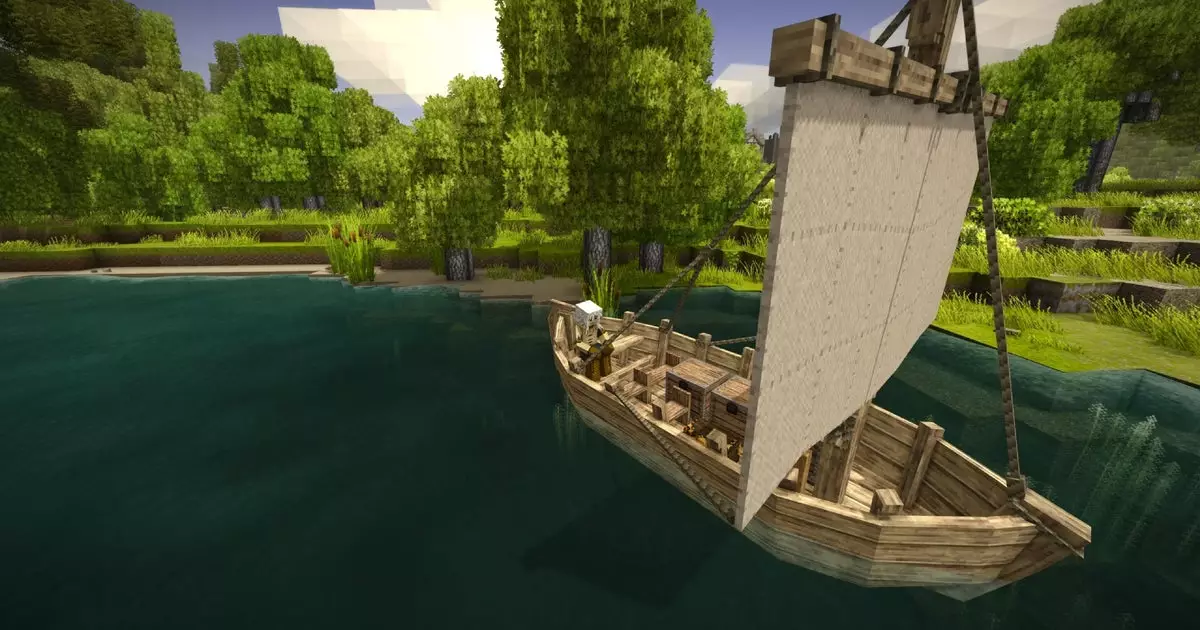The gaming world is a volatile arena where even the most promising projects can be prematurely snuffed out by unforeseen circumstances, often beyond the control of developers. The cancellation of Hytale, a highly anticipated sandbox game that promised to revolutionize the genre with innovative mechanics and a vibrant fantasy universe, exemplifies such fragility. Unlike blockbuster titles backed by massive corporations, indie developers and smaller studios are often left to pick up the pieces when dreams are dashed. Their response, however, can be unexpectedly inspiring, revealing not just resilience but an unwavering commitment to their creative visions.
In the wake of Hytale’s cancellation, a phrase that echoes vigorously is “what could’ve been,” but beneath that lament lies an undercurrent of hope. Developers of other sandbox games like Vintage Story have refused to let go of the spirit that Hytale embodied. Instead of mourning the loss, they are actively fluiding new pathways—using what they have to keep the flame alive. This adaptation emphasizes a striking quality: the capacity of indie creators to morph adversity into an opportunity for innovation and regeneration.
Transforming Loss into a Catalyst for Innovation
Rather than retreating into despair, the team at Vintage Story is taking a bold step forward by developing a new game mode that aims to channel Hytale’s core values—adventure, imagination, and a fantasy universe teeming with possibilities. This move isn’t merely about patchworking an extension; it’s a deliberate attempt to recapture the magic that many players felt was lost with Hytale’s demise. The new mode promises a fresh aesthetic—more fantastical, RPG-inspired, and immersive—differing significantly from Vintage Story’s gritty realism, signaling a clear intention to explore new creative frontiers.
What stands out here is the deliberate effort to sustain community engagement and to foster a sense of shared ownership. The small team — initially composed of four dedicated developers — is not only motivated by the desire to preserve a particular spirit, but they’re also committed to transparency. By involving players early in the development process, they hope to forge a genuinely collaborative environment where community feedback shapes the emerging adventure mode. This approach reflects a broader philosophical shift in indie game development, emphasizing openness, adaptability, and long-term sustainability over quick wins or superficial updates.
Demonstrating Resilience Through Strategic Collaboration
The overarching strategy involves reusing core elements of Vintage Story’s ecosystem—its mechanics, AI, and NPC systems—while pivoting toward a more fantastical, adventure-oriented experience. This focused, streamlined team-building approach underscores an appreciation for quality over quantity, while still allowing for expansion if the project gains momentum. Such prudence is vital; in an environment where resources are limited, pacing and scope management often determine whether a project can survive and thrive.
Furthermore, the developers have expressed a desire to keep the new game mode free with the existing Vintage Story offering, emphasizing community-first thinking. Should this mode become popular, the possibility of spinning it off into a standalone game becomes a realistic goal. This strategy aligns with a core indie philosophy: the importance of nurturing ideas organically, avoiding overextension, and prioritizing meaningful engagement over mere market trends.
Through thoughtful, incremental development and sincere communication, it becomes evident that this small team sees an opportunity to craft a legacy that extends beyond the original game. They recognize their work not as a mere distraction but as a tribute—an act of honoring what has been lost while forging ahead with renewed purpose. Their resilience and strategic planning embody the essence of indie spirit: fighting for creative integrity amidst turbulent industry currents.
In essence, this response exemplifies how smaller studios and passionate developers can redefine the boundaries of what it means to innovate. They demonstrate that even shattered dreams can inspire new realities, provided there’s a willingness to adapt, a depth of commitment, and a belief in the transformative power of community-led development.

